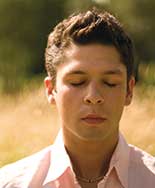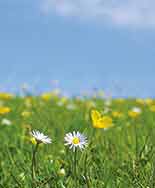Today we are exploring dharma and adharma. What is dharma? Dharma is a Sanskrit word that denotes many things in different contexts and can be applied differently.
However, one definition of dharma is. It represents laws of truth that govern creation. So an example of adharmic law would be oneness. Oneness is a unity consciousness and is part of dharma. This applies in life generally. Another example of dharma is karma, the law of cause and effect. In the West, ‘you sow, so shall you reap’ actually relates to this in this lifetime. In the East it also refers to your previous lifetimes. And then there is another dharmic quality of Ahimsa, which is an ethical dharmic concept. If you're non-violent in your life, it creates harmony. And, of course, the vice versa is also true.
The whole of this creation is driven by certain natural laws and this affects all human beings equally. How does it really apply to us? Actually, dharma applies to you in the sense that when you go against the flow, your dharma then creates certain consequences for you. In other words, if you go against the flow of what is natural, it results in conflict in your life. And this results in emotional and psychological issues, and can finally lead to even ill health. It affects your well-being. So it's really important to understand.
So what does this mean?
We can say that the dharma of the sun is to shine, the dharma of the water is to flow and to be cool. The dharma of the flower is to rise towards the sun. So the question is, what is the dharma of a human being? It is to be the best you that you can be. It is to honour who you are at the very core of your being and to realise that. So the dharma of a human being is to be self realised. That is the journey that we're on.
Dharma can also be based on two understandings of the self - ‘material’ and ‘spiritual’. Material Dharma relates to your duties and your responsibilities in society. J F Kennedy said, ‘Do not ask for what your country can do for you, but what you can do for your country.’ This is the sort of thing that would be in flow with dharma, because it is for the greater good of humanity. Spiritual Dharma is being in flow with nature, and to be more and more conscious, and raising your levels of consciousness. We don’t really need to be told these things because we don’t want others to steal from us, so we don’t steal from others.
Dharma is our innate nature and when we flow with our innate nature and we flow with the harmony of creation, we find that there is health and well-being. This is so important today with climate change and is perhaps an example when we haven't realised how interdependent we are as human beings. So maybe, we have either inadvertently or knowingly perpetrated a challenge where we have created this climate change. Our solutions have to be something that we have to enter into together.
So we have to flow in a way that works for the greater good. On a practical level, just cherish the people around you and cherish the things you believe in. Cherish also the fact that everyone has a right to be and to live, to be as humane as you can possibly be. Of course, we can be really tested on this. What we can do is act in each moment. In this consciousness and with this clarity, there is karma that flows through us. And it's natural. Simply flow with that dharma, you find that this greater home.





























